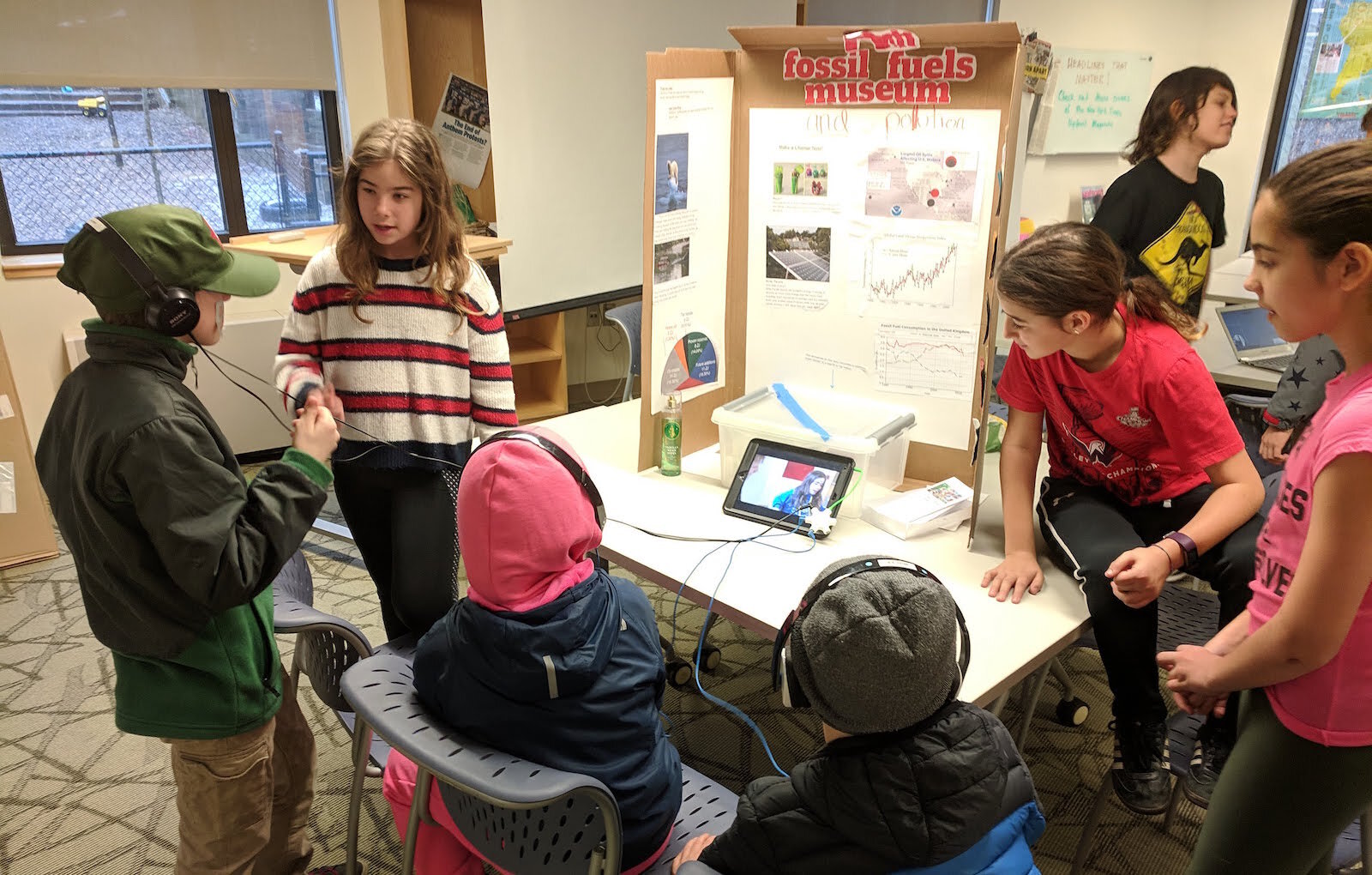Sixth Grade Course: Energy, Movement, Migration, and Political Action
By Faye Colon
In April 2016, Natalie Stapert, the Humanities Curriculum Coordinator at the Lowell School, attended a workshop on climate change facilitated by Rethinking Schools curriculum editor Bill Bigelow and co-hosted by Teaching for Change and the Zinn Education Project. Two lessons from the Rethinking Schools book A People’s Curriculum for the Earth: Teaching Climate Change and the Environmental Crisis were used to structure the workshop.
Stapert was inspired to incorporate curriculum from A People’s Curriculum for the Earth: Teaching Climate Change and the Environmental Crisis into Lowell’s academic program. Prior to making any instructional changes, Stapert spent a year researching the best books and resources, as well as selecting lessons from the book to include in a course on climate change.
In the fall of 2017, the Lowell School implemented a 6th-grade humanities course on climate change titled “Energy, Movement, Migration, and Political Action.” The essential questions for this course include:
Who has the power?
What are the energy options?
What can we do about it?
After reading A Walk to Remember, Buried Sunlight: How Fossil Fuels Have Changed the World, and The Boy Who Harnessed the Wind, 6th graders created a collaborative fossil fuel museum. Students made dioramas that addressed different topics related to fossil fuels. For example, one group of students worked on the impact fossil fuels had on plants and animals, while another group of students explored the connection between transportation and fossil fuels. The students also learned about and created windmills in their science classes.
Later in the spring, in collaboration with the National Organization for Atmospheric Administration, the students engaged in a Paris Conference on climate change.
The climate change course represents Natalie Stapert’s efforts to provide a social justice lens to the humanities courses at Lowell. Stapert has also worked with other grade levels, incorporating resources from the Zinn Education Project to transform the curriculum with a social justice framework.


